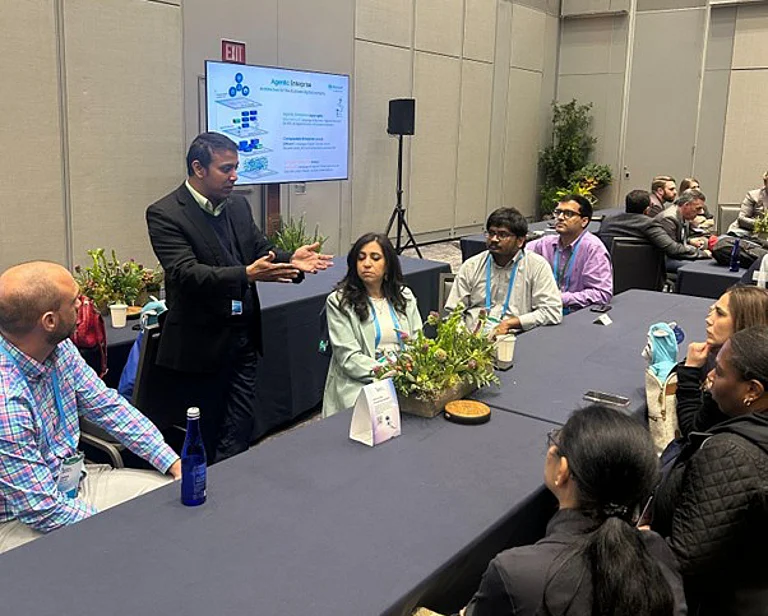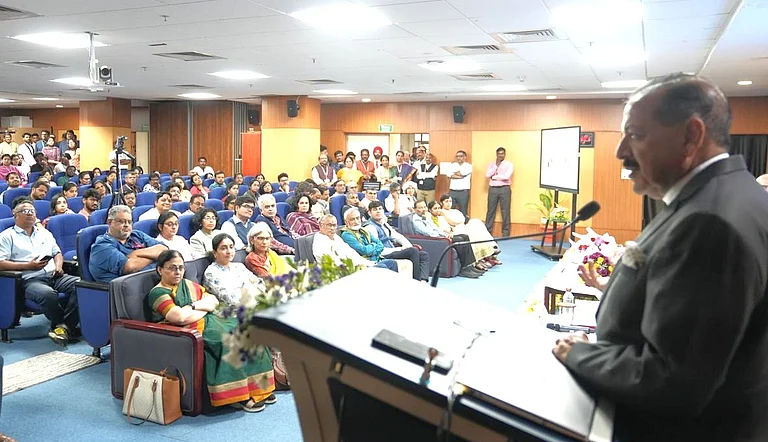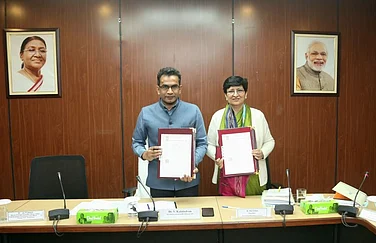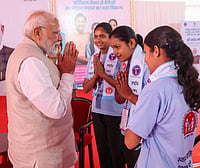Reflecting on contemporary health challenges, Union Science and Technology Minister Dr. Jitendra Singh recently spoke of a “bi-phasic disease spectrum” characterised by the coexistence of communicable and non-communicable diseases, alongside an ageing population and the rapid technological changes being witnessed across the country.
The integration of artificial intelligence (AI) in healthcare, he said, will redefine diagnostics and patient care as is being witnessed through tele-mobile clinics. “AI can communicate in the patient’s own language and even offer comfort through human-like interaction,” he observed, describing it as a hybrid model combining empathy with innovation.
Dr. Singh was addressing the 54th Foundation Day and College Convocation of the University College of Medical Sciences (UCMS), University of Delhi recently in the national capital.
The Minister noted that medical education in India has witnessed a paradigm shift in the past decade, with the number of undergraduate medical seats rising from around 45,000 to nearly 1.5 lakh. The expansion of premier institutions such as AIIMS, he said, has democratised access to education and enabled greater participation of women in medicine.
Describing healthcare delivery as “threefold — accessible, affordable, and available”, Dr. Singh credited schemes like Ayushman Bharat and Jan Aushadhi Kendras for redefining the state–citizen relationship in public health. Citing the evolution of health insurance to include pre-existing diseases, he termed it “one of the most humane innovations in health policy”.
Highlighting India’s growing global footprint in life sciences, Dr. Singh said the Department of Biotechnology had developed the world’s first DNA vaccine for COVID-19 and the HPV vaccine for cervical cancer prevention. India, he added, now supplies indigenous vaccines to over 200 countries.
Referring to recent scientific advances, the Minister mentioned the development of India’s first indigenous antibiotic, Nafithromycin, and gene therapy trials for haemophilia published in the New England Journal of Medicine. These, he said, illustrate India’s emergence as a leader in preventive and therapeutic healthcare.
Dr. Singh urged institutions such as UCMS to collaborate with the private sector for advanced research and clinical trials, observing that “the age of working in silos is over”.
A souvenir chronicling UCMS’s 54-year journey was released on the occasion, highlighting the institution’s contributions to medical education, research, and community health through its partnership with GTB Hospital. Dr. Jitendra Singh conferred degrees upon undergraduate and postgraduate students and urged the new generation of doctors to embrace innovation while staying rooted in compassion.
Awards and medals were presented to meritorious students and faculty members for academic and research excellence.
Concluding his address, Dr. Singh reminded the graduating doctors of their pivotal role in shaping India’s healthcare future. “Those receiving their degrees today will be at the prime of their careers when India celebrates 100 years of independence in 2047,” he said. “Destiny has given you this opportunity to be the architects of a healthier, more self-reliant India.”
The event was attended by Prof. (Dr.) Mahesh Verma, Chairman, Governing Body, UCMS, and Prof. Balaram Pani, Dean of Colleges, University of Delhi, along with faculty members, students, and senior officials.



























